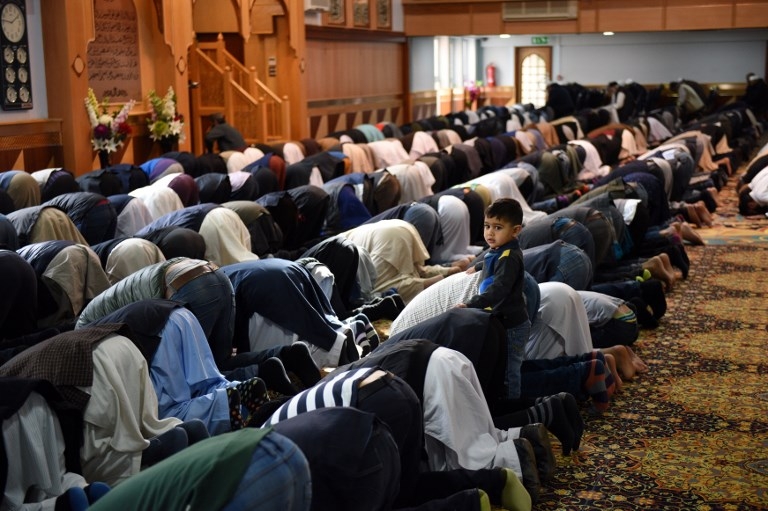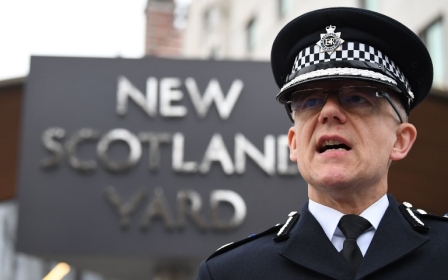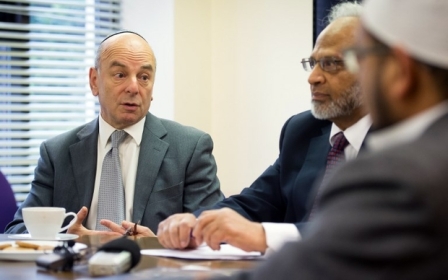Integration not linked to extremism, Muslim body tells UK government

The British government is failing the country's Muslim communities by conflating the issues of extremism and security with integration, the Muslim Council of Britain (MCB) warned on Wednesday.
In a report titled "Our Shared British Future", MCB leaders called on the government to adopt a "positive collaborative approach" and said that integration should be a "two-way street".
Harun Khan, the MCB's secretary general, also raised concerns about the government's promotion of so-called "British values" which he described as "a relatively new term coined after concerns of extremism".
"Many are worried that such values have been conceived in a kneejerk fashion because some people are considered ‘not quite British enough’ and therefore must be subject to a civilising mission," Khan wrote in a foreward to the report.
The MCB is the UK’s largest Muslim umbrella body with over 500 affiliated national, regional and local organisations, mosques, charities and schools.
MCB enjoyed a good relationship with the British government since its founding in 1997 up until the 7 July bombings in 2005 after which, according to MCB’s treasurer Talha Ahmad, the government began to see the Muslim community “primarily intertwined with the idea of counter-terrorism and radicalisation”.
Things took a turn for the worst in 2009 when then minister for communities and local government Hazel Blears demanded the resignation of Daud Abdullah, then MCB deputy secretary general, after he signed the Istanbul Declaration - a statement of support for Palestinians resisting occupation - which she claimed supported violence against British troops and Jews.
The six-part report also calls on the UK government to adopt a positive and “equal integration strategy for all Britons". It says: “We believe a positive collaborative approach is what is needed to create a vision for a united nation that will shape the future for us and the generations to come,” said Khan.
The report, which cautions against approaching the process through the prism of security, comes after UK Justice Secretary David Gauke said on Tuesday that the government would seize children from their parents if they were seen to be radicalising them, warning that those who groomed their children “in pursuit of a radical agenda” could not be left in charge of families.
The MCB has previously launched its own programme to tackle Islamic extremism and challenge the government’s controversial Prevent counter-extremism strategy.
The organisation has tried to involve mosques, community leaders, former police and professionals from mental health in its alternative to the Home Office’s Prevent scheme, which is primarily led by the police.
In the report, former chief constable of Greater Manchester Peter Fahy said: “The debate on integration and immigration... has been poisoned by the impact of violent extremism... [and] attempts by the UK government to promote ‘British values’ was unsuccessful.”
'The debate on integration …has been poisoned by the impact of violent extremism …[and] attempts by the UK Government to promote ‘British values’ was unsuccessful'
- Peter Fahy, former chief constable of Greater Manchester
“This is not surprising when one of the most profound British values is arguably ‘live and let live',” added Fahy in the report, while pointing out that “cohesion which recognises the enormous richness of diversity built on a common set of values” should be prioritised over an approach for integration “which forces everyone to think and act the same”.
Commenting on the report ahead of its formal launch at Portcullis House on Wednesday, shadow home secretary Diane Abbot said: "We must stand up to those who wish to stir division and look to break up our communities, by spreading fear and hatred of the ‘other’.
“We must not merely tolerate difference and diversity, but respect and celebrate its impact on our nation,” added Abbot who contributed to the report.
Another contributor to the report, former government minister Sayeeda Warsi, also called for emphasising “the everyday success stories from across the United Kingdom” while highlighting that “a community is best integrated when it feels it belongs and matters.”
‘Only six percent’
The report comes as the UK government launched a consultation regarding a new strategy to “tackle the root cause of poor integration and create a stronger, more unified Britain”, according to a press release published on Wednesday.
Central to the government’s strategy to integrate UK communities is boosting English language skills, especially among women, and promoting British values in education.
We must stand up to those who wish to stir division and look to break up our communities, by spreading fear and hatred of the ‘other’
- Diane Abott, shadow home secretary
The UK’s communities secretary Sajid Javid promised on Wednesday to expand the teaching of English to immigrants as he warned that up to 70 percent of those unable to speak the language were women, and most of them were from Pakistani or Bangladeshi communities.
Ahead of the publication of the green paper that will pledge £50m to boost integration in Britain, Javid told the Guardian that 770,000 people living in England speak no English or hardly any.
Criticising the move, MCB’s Miqdaad Versi stated that the plan would be unlikely to create much of an impact due to increasing cuts to English language programmes over the past six years.
According to the MCB report, which it hopes will inform government thinking on integration, only six percent of the Muslim communities in Britain are struggling to speak English.
The report also points out that 73 percent of the more than two million UK Muslims are proud to state that their national identity is British.
Former UK prime minister David Cameron was accused in 2016 of stigmatising Muslim women after he announced plans to help them learn English and warned that migrant spouses who fail language tests may have to leave the UK.
Cameron had also suggested that language classes for Muslim women could help stop radicalisation.
The news also comes after Dame Louise Casey called on UK PM Theresa May on Monday to set a target date for “everybody in the country” to speak English. Casey, who wrote a report for the government on integration in 2016, said a "common language" would help to "heal rifts across Britain".
The Casey report has been described as "inflammatory" and "divisive" by its critics for suggesting that immigrants swear an “integration oath” to maintain British values and that Muslims and members of other minority faith groups showed less progressive views towards “women’s equality, sexuality and freedom of speech”.
New MEE newsletter: Jerusalem Dispatch
Sign up to get the latest insights and analysis on Israel-Palestine, alongside Turkey Unpacked and other MEE newsletters
Middle East Eye delivers independent and unrivalled coverage and analysis of the Middle East, North Africa and beyond. To learn more about republishing this content and the associated fees, please fill out this form. More about MEE can be found here.




